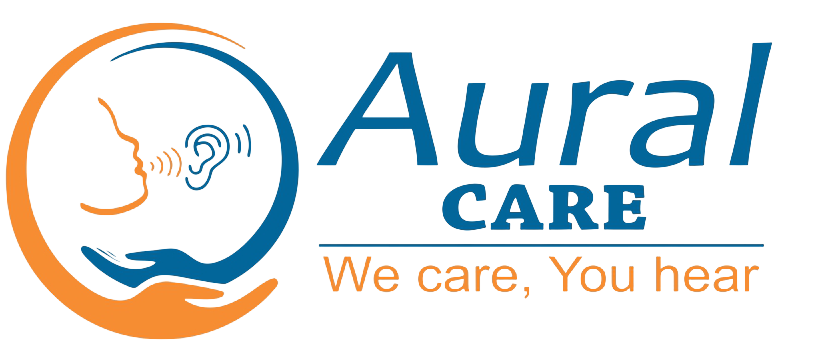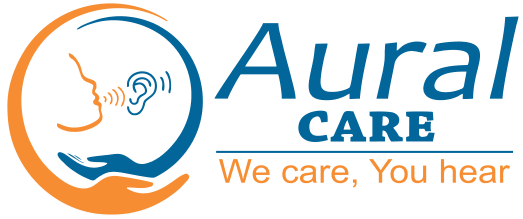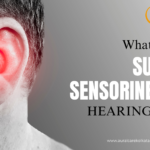Imagine being prepared to begin your day one morning when you discover you are deaf in one ear. Or maybe you’re sitting in a quiet room when all of a sudden your head is filled with ringing, and then your hearing becomes muted. These are the shocking facts of sudden deafness, often known as sudden sensorineural hearing loss (SSNHL).
Many people find this to be a very disturbing experience that makes them wonder right away, “Why did this happen to you?” or Is it possible to restore your hearing? As experts in hearing health, we aim to educate you about sensorineural hearing loss, especially its abrupt onset, and offer you empathetic, straightforward responses.
What Is Sudden Sensorineural Hearing Loss?
Sudden sensorineural hearing loss, often referred to as sudden deafness, is a rapid decline in hearing that occurs over a short period—typically within 72 hours. This condition originates from the inner ear, the auditory nerve, or the brain’s auditory processing pathways. SSNHL is a medical emergency that requires immediate attention to improve the chances of recovery.
SSNHL can range from mild hearing loss to complete hearing loss, depending on the degree of damage. Here’s a breakdown:
- Mild hearing loss: A loss of hearing between 26 to 40 decibels.
- Moderate hearing loss: A loss of hearing between 41 to 55 decibels.
- Severe hearing loss: A loss of hearing more than 71 decibels, which can result in significant difficulty understanding speech or even complete loss of hearing.
SSNHL affects an estimated 5 to 27 per 100,000 people annually. However, the prevalence might be higher since many cases remain unreported. While this condition can occur at any age, it is most commonly diagnosed in adults aged 30 to 60 years.
When experiencing sudden hearing loss, individuals often feel disoriented, anxious, and isolated. Understanding the potential causes and seeking immediate medical help is vital to managing this condition effectively.
The Emotional Impact of SSNHL
Unexpected hearing loss is a very personal event that interferes with one’s sense of connection to the outside world; it is not merely a medical problem. Patients frequently express emotions of anxiety, dissatisfaction, and loneliness. Commonplace actions like conversing, listening to music, or even crossing a busy street can suddenly seem like difficult undertakings.
Being aware of the possible causes of SSNHL helps reassure people and direct them toward the best course of action.
What Causes Sudden Sensorineural Hearing Loss?
The exact cause of SSNHL is unknown in nearly 90% of cases, making it an idiopathic condition. However, research has identified several possible factors. Let’s delve into these causes, explaining how they can contribute to the abrupt loss of hearing.
1. Viral Infections: Silent Saboteurs
Viral infections are among the most common suspected causes of SSNHL. Viruses such as herpes simplex, mumps, measles, and the Epstein-Barr virus can inflame the inner ear or damage the auditory nerve.
- How it happens: These viruses may directly attack the cochlea (the hearing organ) or disrupt the blood supply to the inner ear, causing a sudden breakdown in hearing function.
- Common scenarios: You might notice hearing loss after recovering from a cold, flu, or other viral illness.
2. Autoimmune Disorders: When the Body Turns on Itself
Autoimmune conditions, where the immune system mistakenly attacks healthy cells, can target the inner ear. Examples include: 1. Cogan’s Syndrome, 2. Systemic Lupus Erythematosus (SLE), 3. Rheumatoid Arthritis
- Why it matters: Autoimmune-related hearing loss is often progressive but can include sudden episodes. It may also affect both ears.
- Symptoms to watch for: If you have an autoimmune condition and experience ringing in your ears (tinnitus) alongside sudden hearing loss, seek help immediately.
3. Inner Ear Trauma: The Unseen Damage
Physical injuries to the inner ear or auditory nerve can cause SSNHL. This includes:
- Barotrauma: Rapid changes in air or water pressure, such as during air travel or scuba diving.
- Head trauma: A fall, accident, or sports injury that impacts the head or ear.
These events can damage delicate inner ear structures, disrupting their ability to process sound.
4. Blood Flow Problems: A Vascular Crisis
The inner ear relies on a steady blood supply to function. Conditions that reduce or block this blood flow—such as a stroke, blood clot, or vasculitis—can result in SSNHL.
- The connection to lifestyle: Factors like smoking, high cholesterol, and hypertension increase the risk of vascular-related hearing loss.
5. Ototoxic Medications: Medications That Harm Hearing
Certain drugs can have toxic effects on the inner ear. These include:
- Aminoglycoside antibiotics (e.g., gentamicin)
- Chemotherapy agents (e.g., cisplatin)
- High doses of aspirin or certain diuretics
If you’re prescribed any of these medications, discuss potential side effects with your doctor.
6. Acoustic Neuroma: A Rare But Possible Cause
An acoustic neuroma is a non-cancerous tumor on the auditory nerve. While rare, it can compress the nerve and interfere with hearing and balance.
- Symptoms: In addition to hearing loss, acoustic neuromas often cause tinnitus and vertigo.
7. Other Possible Causes
- Meniere’s Disease: A disorder affecting the inner ear’s fluid balance.
- Neurological Disorders: Conditions like multiple sclerosis (MS) that affect the central nervous system.
- Stress and Fatigue: Although less studied, high levels of stress may exacerbate underlying vulnerabilities to SSNHL.
Symptoms of Sudden Sensorineural Hearing Loss
Recognizing the symptoms of SSNHL is crucial for seeking timely treatment:
- Sudden hearing loss in one ear (or both, in rare cases)
- Tinnitus: A persistent ringing or buzzing sound
- Fullness in the ear: A sensation of pressure or blockage
- Vertigo: Dizziness or imbalance
- Difficulty understanding speech: Especially in noisy environments
How is Sudden Sensorineural Hearing Loss Diagnosed?
If you suspect SSNHL, consult an audiologist or ENT specialist immediately. A thorough evaluation typically involves:
1. Hearing Tests
- Pure-Tone Audiometry: Measures your ability to hear various frequencies.
- Speech Discrimination Tests: Determines how well you understand words.
If you’re looking for a Best Hearing aid center for you or Hearing impairment service in Kolkata, then this is the right place for you.
Contact us
2. Imaging
MRI or CT scans may be conducted to rule out tumors, strokes, or other structural issues affecting the auditory nerve or brain.
3. Lab Tests
Blood work can reveal infections, autoimmune markers, or other underlying causes.
Treatment Options for Sudden Sensorineural Hearing Loss
The good news is that many treatment options are available, especially when initiated promptly.
1. Corticosteroids
Steroids are the frontline treatment for SSNHL. They work by reducing inflammation in the cochlea and auditory nerve. These can be administered:
- Orally: Pills taken over several days.
- Intratympanically: Injected directly into the ear for targeted relief.
2. Antiviral Medications
If a viral infection is suspected, antiviral drugs like acyclovir may be prescribed.
3. Hyperbaric Oxygen Therapy (HBOT)
HBOT involves breathing pure oxygen in a pressurized chamber, enhancing oxygen delivery to the inner ear.
4. Hearing Aids and Implants
For patients with permanent hearing loss, modern hearing aids or cochlear implants can significantly improve communication and quality of life.
Prognosis and Recovery
The prognosis for SSNHL varies depending on the severity and cause. Early intervention is key, as about 50% of individuals experience partial or full recovery, particularly when treated within the first two weeks of onset. Factors influencing recovery include:
- The degree of hearing loss at onset
- The presence of vertigo
- Age and overall health
Preventing Sensorineural Hearing Loss
While some cases of SSNHL are unavoidable, you can take steps to protect your hearing:
- Use ear protection in noisy environments.
- Avoid prolonged use of ototoxic drugs unless absolutely necessary.
- Manage chronic conditions like diabetes or hypertension.
- Practice stress management techniques, such as yoga or meditation.
Conclusion
Sudden sensorineural hearing loss is a life-altering condition, but with timely intervention, there’s hope for recovery. If you or someone you love experiences sudden hearing loss, don’t delay—seek medical attention immediately. Every moment counts, and your hearing health is worth the effort.
Your journey doesn’t end with diagnosis—it’s the beginning of understanding, adapting, and finding solutions tailored to your needs. Always prioritize your well-being and take charge of your hearing health today.
If you or someone you know experiences sudden hearing loss, consult an ENT specialist without delay to improve the chances of recovery.
Google Location: www.maps.app.goo.gl


